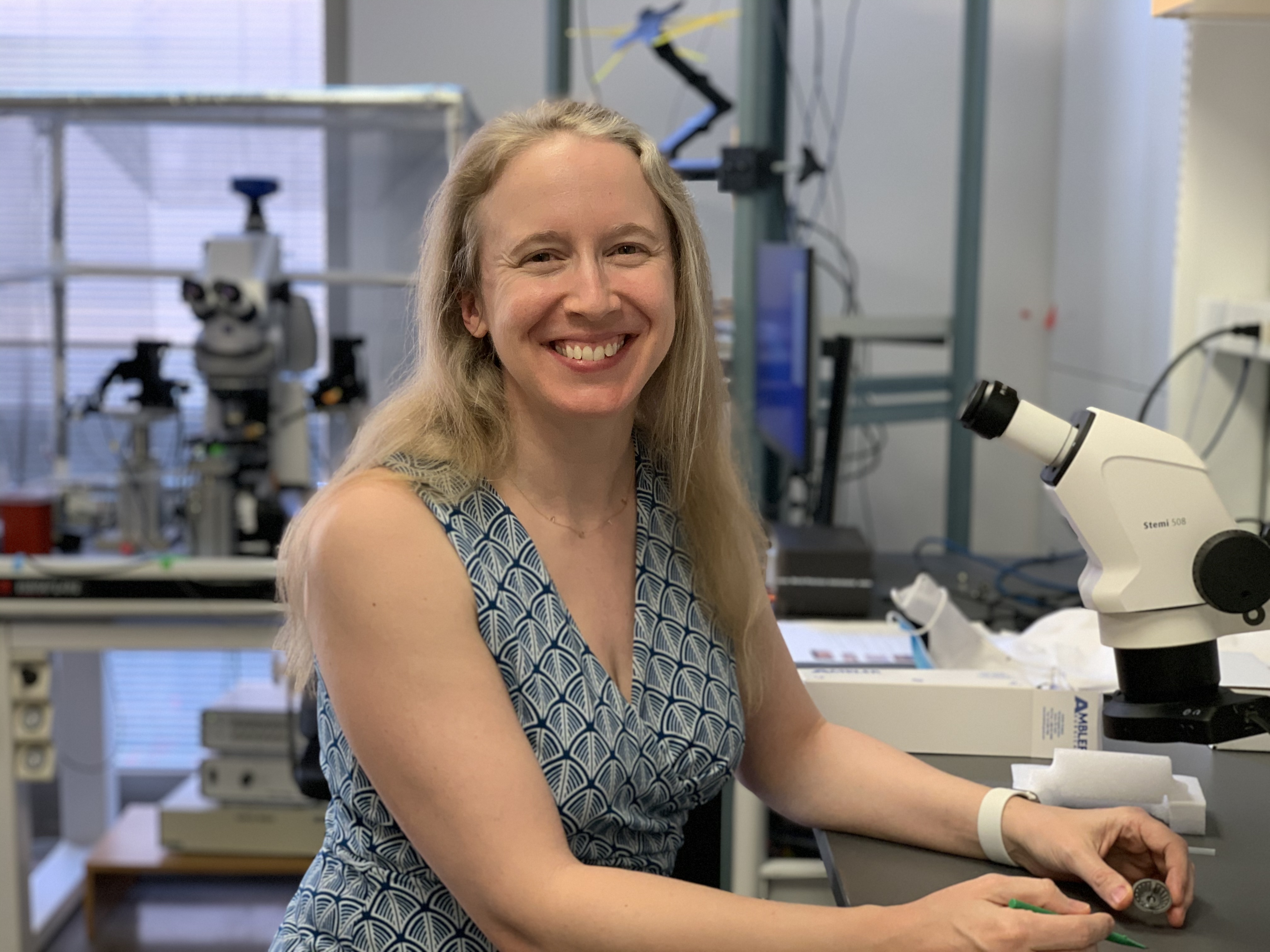PRESS RELEASE – Understanding the challenges in executive function for those with SETBP1 Disorder
Understanding the challenges in executive function for those with SETBP1 Disorder
Austin, TX — April 1, 2021 — In December of 2020, Dr. Audrey Brumback was awarded a grant as a result of SETBP1 Society’s participation in the annual Million Dollar Bike Ride, hosted by the University of Pennsylvania and Orphan Disease Center (ODC). As a result of this grant, Dr. Brumback will host SETBP1 mouse models in her lab to evaluate the neurons in the prefrontal cortex that transmit information from the cortex to the thalamus.

It is in these neurons that she has found the greatest impact to executive function for those with neurodevelopmental disorders. Executive functions are the cognitive skills required to achieve a goal such as focusing attention, filtering out distractions, controlling impulses, prioritizing tasks and to set and achieve the goal. “In my work with three different mouse models of autism, we found that these corticothalamic neurons needed for executive function and social cognition were not working properly. When we adjusted the activity, we saw that it increased the time mice spent engaged in social exploration.” said Dr. Brumback, member of the College of Natural Sciences and assistant professor in the Departments of Neurology and Pediatrics at Dell Medical School at The University of Texas Austin. “It is our goal to map out brain circuits to identify which symptoms of executive dysfunction tie to specific populations of neurons. From there, we seek to understand if we can generalize this to other disorders or if this is peculiar to just this one.”
It is uncommon for a therapeutic treatment to be developed for only one rare disease. Oftentimes, rare disease research requires the findings to address commonalities across several disorders for further development of a treatment. The SETBP1 community is hopeful that with Dr. Brumback’s knowledge and exposure to many neurodevelopmental disorders, that there may be an opportunity to find a therapy with beneficial effects across multiple diseases. “One of my biggest hopes is that we will find a pathway or target that impacts several disorders including SETBP1 disorder,” shared Haley Oyler, President of SETBP1 Society. “Dr. Brumback’s research is unique in that she is looking to see if changing brain circuitry can be a treatment for neurodevelopmental disorders in the future and I find that area of novel research fascinating. She is a pioneer in this area of research. Her research in mice has the possibility of one day leading to a treatment to help individuals with neurodevelopmental disorders.”
While her ultimate goal is to be able to guide the development of a therapy, via non-invasive neuromodulation, she knows her impact in neurodevelopmental disorders goes beyond the four walls of her lab. “More than anything, as a scientist, whether basic or clinical, we want to help people and make that personal connection. That’s what inspires us to ask more questions – the right questions – to work to address the real life issues that people are experiencing.”
About SETBP Society: SETBP1 Society is an internationally focused volunteer 501(c)(3) organization based in the US with a mission to provide support to individuals with SETBP1 disorder and their families, to promote discussion and fund research, and to bring awareness and education to the public.
For more information, press only:
Kelsey Bennett
402-619-8695
info@setbp1.org
For more information about the SETBP1 Society: https://www.setbp1.org
For more information about Dr Audrey Brumback:
http://sites.utexas.edu/brumback-lab/team/audrey-brumback/
Learn more about Dr Brumback’s lab:
https://www.brumbacklab.com/

